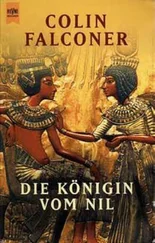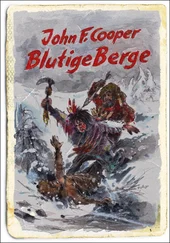John Cheever - Falconer
Здесь есть возможность читать онлайн «John Cheever - Falconer» весь текст электронной книги совершенно бесплатно (целиком полную версию без сокращений). В некоторых случаях можно слушать аудио, скачать через торрент в формате fb2 и присутствует краткое содержание. Жанр: Современная проза, на английском языке. Описание произведения, (предисловие) а так же отзывы посетителей доступны на портале библиотеки ЛибКат.
- Название:Falconer
- Автор:
- Жанр:
- Год:неизвестен
- ISBN:нет данных
- Рейтинг книги:3 / 5. Голосов: 1
-
Избранное:Добавить в избранное
- Отзывы:
-
Ваша оценка:
- 60
- 1
- 2
- 3
- 4
- 5
Falconer: краткое содержание, описание и аннотация
Предлагаем к чтению аннотацию, описание, краткое содержание или предисловие (зависит от того, что написал сам автор книги «Falconer»). Если вы не нашли необходимую информацию о книге — напишите в комментариях, мы постараемся отыскать её.
Falconer — читать онлайн бесплатно полную книгу (весь текст) целиком
Ниже представлен текст книги, разбитый по страницам. Система сохранения места последней прочитанной страницы, позволяет с удобством читать онлайн бесплатно книгу «Falconer», без необходимости каждый раз заново искать на чём Вы остановились. Поставьте закладку, и сможете в любой момент перейти на страницу, на которой закончили чтение.
Интервал:
Закладка:
It was very quiet. Farragut’s fever reminded him of the bliss of drugs, something he seemed to have forsworn. He was torpid. Then a strange thing happened. He saw, at the open door of his cell, a young man with summery hair and immaculate clericals, holding a little tray with a silver chalice and ciborium. "I've come to celebrate the Holy Eucharist," he said. Farragut got out of bed. The stranger came into the cell. He had a very cleanly smell, Farragut noticed as he approached him and asked, "Shall I kneel?" "Yes, please," said the priest. Farragut knelt on the worn concrete, that surface of some old highway. The thought that these might be intended for his last rites did not disconcert him. There was nothing on his mind at all and he entered, completely, into the verbal pavane he had been taught as a youth. "Holy, Holy, Holy." he said in a loud and manly voice. "Heaven and earth are full of Thy Glory. Praise be to Thee, O Lord most high." When he had been blessed with the peace that passes all understanding, he said, "Thank you, Father," and the priest said, "God bless you, my son." But when the youth had left his cell and the block, Farragut began to shout, "Now, who in hell was that, Walton? Who in hell was that?"
"It was some do-gooder," said Walton. "I have to study."
"But how did he get in? I didn't ask for a priest. He didn't do his thing for anybody else. Why did he pick on me?"
"This place is going to hell," said Walton. "No wonder they got riots. They let anybody in. Salesmen. Encyclopedias. Frying pans. Vacuum cleaners."
"I'll write the governor," said Farragut. "If we can't get out, why can everybody get in here? They take your picture, they give you the Holy Eucharist, they ask your mother's maiden name."
He woke late that night. The toilet woke him. He didn't check the time. Naked, he went to his window. Bright lights burned on the drive. A station wagon with its motor running was parked in front of the main entrance. A ski rack was lashed to the roof. Then he saw two men and a woman come down the stairs. All three wore tennis sneakers. They carried an old-fashioned wooden coffin with a cross painted on its top. It was built to fit some rudimentary concept of a Byzantine male, with broad, sloping shoulders and a slender base. Whatever it contained weighed almost nothing. Lightly they lifted it onto the ski rack, secured it there and drove away. Farragut returned to bed and slept.
On Sunday afternoon when he came on duty Tiny brought Farragut halt a dozen tomatoes and asked him to take Chicken into his cell. The old man needed care. Tiny explained that the infirmary was full of beds, they had put beds in the waiting room, the administration office and the corridors, but there was still no room. Farragut ate his tomatoes and agreed. Farragut made his bed in the upper bunk and Tiny got sheets and a blanket and made a bed for Chicken. When Tiny brought Chicken down the corridor he seemed half asleep and he was very smelly. “I'll wash him before I put him in clean sheets," said Farragut. "It's up to you," said Tiny. "Fm going to wash you," he said to Chicken. "You don't have to do this," said Chicken, "but I couldn't walk Co the shower." "I know, I know." He drew a basin of water, got a cloth and removed the invalid shift Chicken was wearing.
The famous tattooing, on which he had squandered the fortune he had made as a brilliant second-story worker, began very neatly at his neck, like a well-cut sweater. All the colors had fled and even the blue of the primary design had gone to gray. What a gaudy sight he must have been! His chest and his upper abdomen were occupied by the portrait of a horse named Lucky Bess. On his left arm there was a sword, a shield, a serpent and the legend "Death Before Dishonor." Below this was "Mother," wreathed in flowers. On his right arm was a lewd dancer, who could probably buck when he flexed his biceps. She stood above the heads of a crowd that covered his forearm. Most of his back was a broad mountainous landscape with a rising sun, and below this, forming an arch above his buttocks, Farragut read, in faded and clumsy Gothic lettering: "Abandon all hope, ye who enter here." Serpents sprang from his groin and wound down both his legs, with his toes for fangs. All the rest of him was dense foliage. "Why did you sell your gitfiddle, Chicken?" he asked. "For two cartons of menthos," said Chicken. "But why-why?" "Curiosity killed the cat," said Chicken. "Why did you kill your brother, Zeke?"
The accident or what they called the murder had taken place, Farragut thought, because of the fact that whenever he remembered or dreamed about his family he always saw them from the back. They were always stamping indignantly out of concert halls, theaters, sports arenas and restaurants, and he, as the youngest, was always in the rear. "If Koussevitzky thinks I’ll listen to that…" "That umpire is crooked." "This play is degenerate." "I don't like the way that waiter looked at me." "That clerk was impudent." And so on. They saw almost nothing to its completion, and that's the way he remembered them, heading, for some reason in wet raincoats, for the exit. It had occurred to him that they may have suffered terribly from claustrophobia and disguised this weakness as moral indignation.
They were also very bountiful, especially the ladies. They were always raising money to buy skinny chickens for people who lived in tenements or organizing private schools that often went bankrupt. Farragut supposed they did some good, but he had always found their magnanimity painfully embarrassing and he knew for a fact that some of the people who lived in tenements had no use for their skinny chickens. Farragut's only brother, Eben, possessed both of the family traits. He found most waiters, barmen and clerks impertinent, and to meet him for lunch in a restaurant almost always meant a scene. Eben didn't distribute chickens, but he had informed Farragut that on Saturday morning he read to the blind at the Twin Brooks Nursing Home. On this Saturday Farragut and Marcia drove out to the country where Eben and Charrie lived. It had been more than a year since the brothers had met. Farragut thought his brother heavy and even gross. The lives of his two children were tragic and Farragut resented the fact that Eben claimed these tragedies to be merely the nature of life. When they arrived Eben was about to leave for the nursing home and Farragut went along with his only brother.
The Twin Brooks Nursing Home was a complex of one-story buildings with such a commanding view of some river and some mountains that Farragut wondered if this vastness would console or embitter the dying. The heat when they stepped into the place was suffocating, and as Farragut followed his brother down the hall he noticed how heavily perfumed was the overheated air. One after another he smelled, with his long nose, imitations of the thrilling fragrances of spring and verdancy. Pine drifted out of the toilets. The parlors smelled of roses, wisteria, carnations and lemons. But all this was so blatantly artificial that one could imagine the bottles and cans in which the scents were stored, standing on shelves in some closet.
The dying-and that's what they were-were emaciated.
"Your group is waiting in the Garden Room," a male nurse told Eben. His black hair was gleaming, his face was sallow and he gave Farragut the eye like the hustler he was. The room they entered was labeled the Garden Room presumably because the furniture was iron and painted green and reminiscent of gardens. The wall was papered with a garden landscape. There were eight patients. They were mostly in wheelchairs. One of them maneuvered on a walker. One of them was not only blind, but her legs had been amputated at the thigh. Another blind woman was very heavily rouged. Her cheeks were blazing. Farragut had seen this in old women before and he wondered if it was an eccentricity of age- although she couldn't have seen what she was doing.
Читать дальшеИнтервал:
Закладка:
Похожие книги на «Falconer»
Представляем Вашему вниманию похожие книги на «Falconer» списком для выбора. Мы отобрали схожую по названию и смыслу литературу в надежде предоставить читателям больше вариантов отыскать новые, интересные, ещё непрочитанные произведения.
Обсуждение, отзывы о книге «Falconer» и просто собственные мнения читателей. Оставьте ваши комментарии, напишите, что Вы думаете о произведении, его смысле или главных героях. Укажите что конкретно понравилось, а что нет, и почему Вы так считаете.












